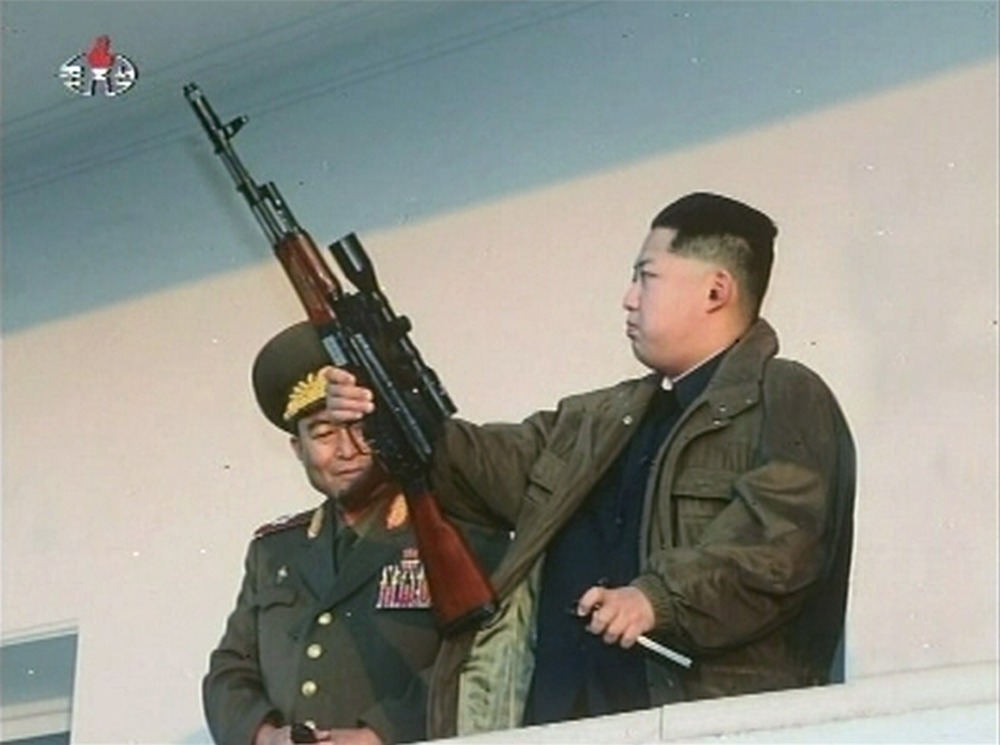And Then There Was Un
 On December 17, 2011, North Korea lost Kim Jong-il – its “Dear Leader” – to a heart attack. Without missing a beat, North Korea’s state-run media anointed his third son Kim Jong-un as the “Great Successor” and placed the fate of the North Korean people squarely in his 28-year-old hands. One look at North Korea’s pudgy new protagonist is enough to make me worry not only about the fate of the North Korean people, but about the future security of the East Asian region as a whole.
While the true political machinations of the Democratic People’s Republic of Korea have always been somewhat opaque for outside observers, it does seem certain that Kim III will experience some difficulty in consolidating his power. Un’s ability to command true respect from North Korea’s military generals and political elites remains uncertain. However, given the lightning-fast and unexpected nature of his ascension, the likelihood of discontent among the leadership remains high. Much will depend on the Great Successor’s uncle, Jang Seong-taek, and military chief Ri Yong-ho, who are well-positioned to become puppet-masters mentors for Kim Jong-un as he attempts to solidify power and loyalty.
On December 17, 2011, North Korea lost Kim Jong-il – its “Dear Leader” – to a heart attack. Without missing a beat, North Korea’s state-run media anointed his third son Kim Jong-un as the “Great Successor” and placed the fate of the North Korean people squarely in his 28-year-old hands. One look at North Korea’s pudgy new protagonist is enough to make me worry not only about the fate of the North Korean people, but about the future security of the East Asian region as a whole.
While the true political machinations of the Democratic People’s Republic of Korea have always been somewhat opaque for outside observers, it does seem certain that Kim III will experience some difficulty in consolidating his power. Un’s ability to command true respect from North Korea’s military generals and political elites remains uncertain. However, given the lightning-fast and unexpected nature of his ascension, the likelihood of discontent among the leadership remains high. Much will depend on the Great Successor’s uncle, Jang Seong-taek, and military chief Ri Yong-ho, who are well-positioned to become puppet-masters mentors for Kim Jong-un as he attempts to solidify power and loyalty.
The potential for an internal power struggle remains high, and, if combined with severe internal unrest, could result in an outright regime collapse. This would be catastrophic on several fronts, including: the dissemination of nuclear materials, a flow of millions of North Koreans into Northern China, and bloodshed naturally arising from the unrest that would follow governmental collapse. However, we must not underestimate the determination of the Kim regime to endure – even as millions of its citizens starved to death in the 1990s, the regime allocated resources to military officials in order to ensure their loyalty.
No matter what the outcome of a potential power struggle, the DPRK regime as it now exists is unlikely to ever treat the United States as anything other than a mortal enemy. Given the delicate and uncertain nature of the situation, what can the United States do to influence the situation? The answer, in the short term, is, "Not much.” In order to consolidate power and build confidence in its military leadership, the regime is likely to rattle sabers at the United States and South Korea – testing more nuclear weapons, shelling more islands, and perhaps torpedoing a submarine or two. However, with China standing as a continual source of diplomatic support for the regime, there is little Washington or Seoul can do but wait. Certainly, if given a reasonable causus belli, such as an attack on any South Korean civilian center, South Korea and the United States should not be afraid to strike back. But the best strategy, however frustrating it may be, remains to watch and wait.
Repressive regimes such as the Kim Dynasty in North Korea always have expiration dates, and it is only a matter of time before Kim Jong-un and the nightmare constructed by his father and grandfather comes to an end. There is no greater power than a people’s demand for dignity. And one pudgy little man in Pyongyang can’t stop that.
